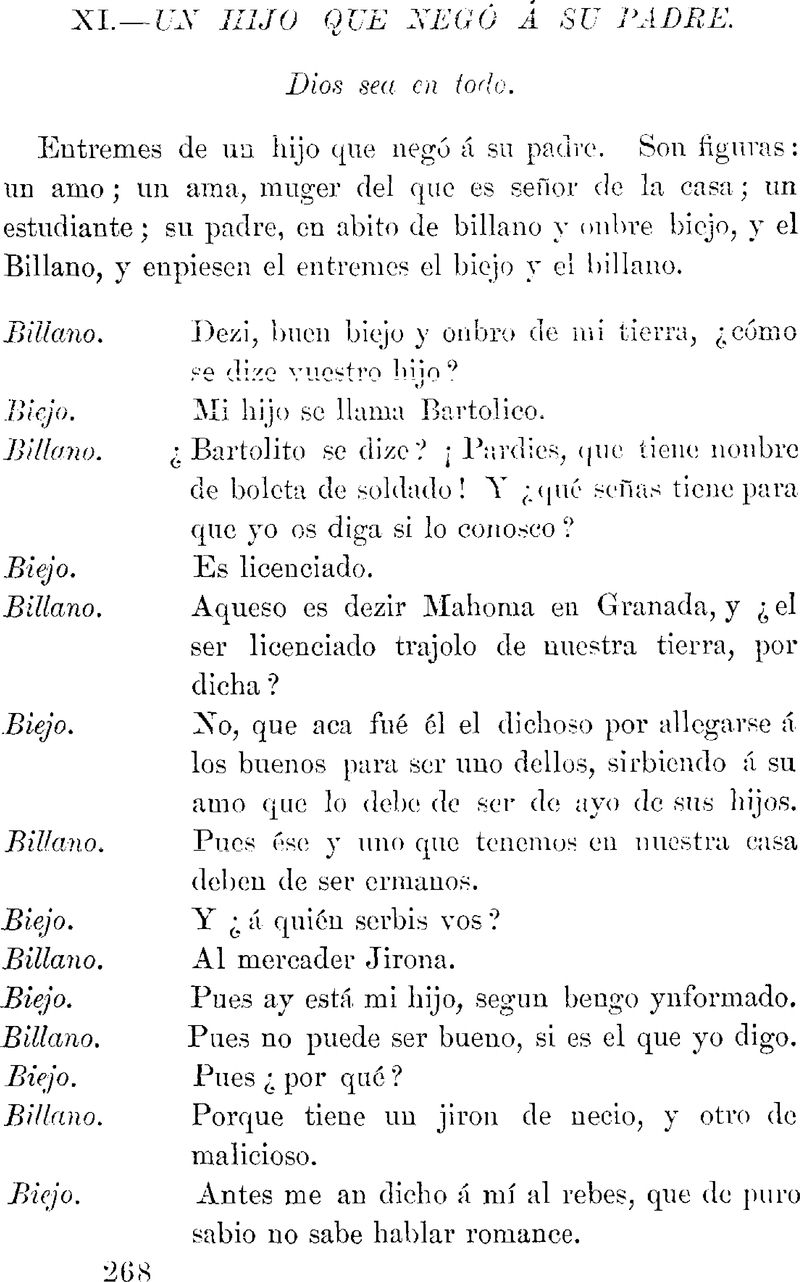No CrossRef data available.
Article contents
Un Hijo que Negó á su Padre Dios sea en todo
Published online by Cambridge University Press: 02 December 2020
Abstract

- Type
- Other
- Information
- Copyright
- Copyright © Modern Language Association of America, 1910
References
page 270 note 1 This may refer to Esperaindeo, abbot at Córdoba, who lived in the ninth century. For his condemnation of the Christians who were living on intimate terms with the Moors, he was called by San Eulogio, the “Light of the Church.” However, the allusion may merely be to one of those traditional characters which occur so often in colloquial Spanish. Vasco Diaz Tanco de Fregenal refers to Juan de Espera-en-Dios, in the prologue to his Jardin del Alma cristiana, Valladolid, 1552. “Quisiera que fuera verdad lo que algunos de sus comensales (del obispo de Cuenca) en burla proponen, scilicet, que Fregenal se hace cada año más mozo, como Juan de Espera-en-Dios.” Gallardo, Ensayo de una biblioteca de libros raros y curiosos, Vol. ii, col. 783.
page 270 note 2 This refers to the Emblemata of Andrea Alciato (1492–1550), an Italian jurist. A Spanish translation by Bernardino Daza of this celebrated collection of emblems appeared in 1549.
page 271 note 1 conbidamos for conbidanos.
page 271 note 2 sos for sois.
page 272 note 1 There are two towns in Spain with the name Para, one in the province of Burgos, and the other in the province of Oviedo. There is a play of words here on Para and parra (grapevine).
page 272 note 2 Concerning the saludadores, see M. Rouanet's interesting note in his Intermèdes Espagnols, p. 311–12.
page 272 note 3 asial for acial.
page 273 note 1 quis bel qui, Latin quis vel qui.




